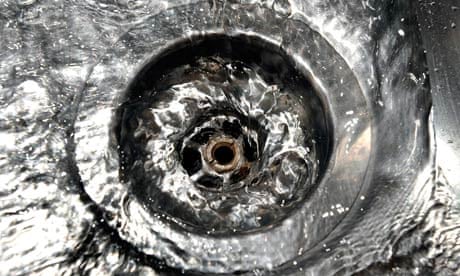"Water poverty" will become the new fuel poverty for an increasing number of households as scarcity of supply pushes up bills, according to an influential thinktank that says Britain must deal urgently with climate change.
A report by the Joseph Rowntree Foundation, one of the largest social policy research-and-development charities, says that low-income households are at particular risk because of new methods being introduced to increase the efficient use and distribution of water. It defines "water poverty" as when households spend 3% or more of their income on water bills.
The report, Vulnerability to Heat Waves and Drought: Adaptation to Climate Change, by the environmental consultancy AEA and a team from the University of Surrey, warns that water is becoming scarce as a result of climate change and increased consumer demand. An estimated four million households in the UK are already "water poor", according to the report, and the situation is likely to worsen, with bills predicted to rise by 5% a year for some customers.
Water companies are moving away from flat-rate fees to new charging models that bill customers with steadily higher prices according to how much water they use.
The report warns that this could create affordability problems for some low-income households and lead to "water poverty".
"The issue of water poverty – just like fuel poverty – is extremely important, especially as we start to look into the future and consider how climate change is going to impact society," said the report's lead author, Magnus Benzie. The south-west of England, where bills are on average 43% higher than in the rest of the country, is set to be particularly affected as the UK becomes significantly drier in coming decades, according to the report.
It suggests that any influx of people into the region, coupled with increases in tourism, will exacerbate the problem. The region has tried a new pricing system, using three tariffs that ratchet up with increased water use, but there are concerns that this may see some households hit disproportionately.
"We currently waste a lot of water, so on one level it makes sense to encourage greater efficiency by charging people depending on how much water they use," Benzie said. "But some tariffs can put unfair pressure on households that cannot reduce their water consumption, either because of household size, medical needs or an inability to invest in water-efficient appliances."
Water poverty is expected to be acute in "urban heat islands" – built-up environments that retain heat more than surrounding areas.
Failures to anticipate the threat posed by climate change can be fatal. The authors point to the heatwave across Europe in 2003 that led to more than 30,000 premature deaths.
"Climate change and how we adapt to it will impact upon disadvantaged groups in different ways," said Josh Stott, research manager at the Joseph Rowntree Foundation. "This report highlights the need for policy-makers and agencies to consider these social justice issues when preparing and building resilience to climate change, to improve the outcomes for vulnerable people."
